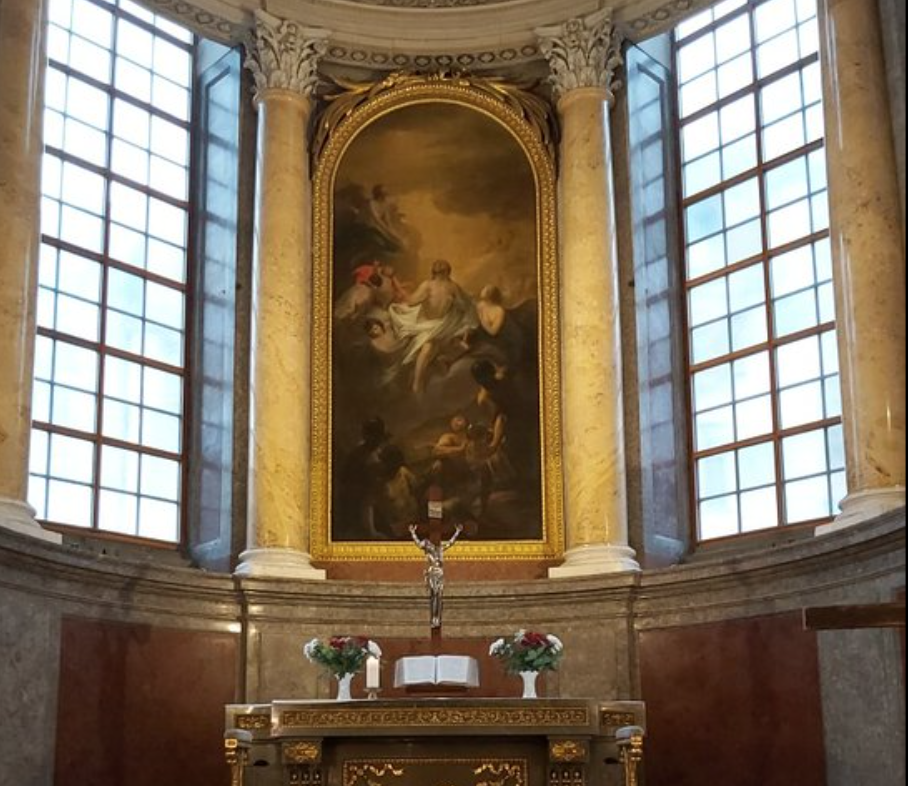
Today, Good Friday, of course is a very important ‘death’ day in the Christian calendar. For those connected to the deeper level of Christian belief, it’s more important than Christmas Day – although it will be outranked in three days time by Easter Sunday.
All the Christian denominations have in common the belief that on this day, Christ died on the Cross – and then rose from the dead three days later, on Easter Sunday.
Australia’s Christian heritage has led to Easter bunnies, Easter eggs and where I come from in Sydney, the Royal Easter Show. It’s also a great long weekend, when families can get together to share a traditional feast, whether its lamb, chicken or something else.
A deeply embedded and devout Christian won’t wish you “Happy Easter” today or tomorrow. They’ll wait until Easter Sunday, when He is risen. Churches that normally display Christ on the Cross will have this symbol draped in purple cloth, until Easter Sunday. Because for these three days of the year, He is not risen, He is dead.
The theological meaning behind Easter and its related festivities is about resurrection – suffering and death followed three days later by rebirth and renewal.
Whatever your religious beliefs or cultural tradition that’s a big and beautiful idea to focus on – that after death there is always life – just as after life there is always death. They are a cycle in perfect harmony.
Yes, death will come. If you’re a Christian believer, life after death will follow, maybe even a very big and glorious one. But the idea that life will inevitably follow death, no matter how sad or how tragic that death has been, is an idea that each one of us can hang on to, no matter what our religious beliefs or how sad we feel.
How many families do you know who’ve buried the family patriarch or matriarch, only to have a wedding follow, just as my cycling buddy and friend Sue’s family is doing right now. Or you could be like my family: two elderly great-grandmothers, from different branches of the family, each one dying two days before the arrival of a great-grandchild.
At Good Grief! we firmly believe in the idea of renewal after death and grief. Maybe this belief is grounded in a Christian one.
But it’s a beautiful idea, whatever it’s provenance.
Theology transformed into musical tradition with the St John’s Passion by Johann Sebastian Bach. It tells the Good Friday story, of Christ’s Passion, in music and song.
It was first performed at Vespers in Leipzig, Germany, on Good Friday, 7 April, 1724, at St Nicholas Church. It was constantly evolving, as Bach tinkered with it during his life time, so there are a few variations. Here is a beautiful version played by the Netherlands Bach Society.
- Birth is a beginning, death a destination: https://good-grief.com.au/birth-is-a-beginning-and-death-a-destination
- Balancing sorrow and growth: https://good-grief.com.au/balancing-sorrow-and-growth
- Contact, Listen and bless: https://good-grief.com.au/contact-listen-and-bless
